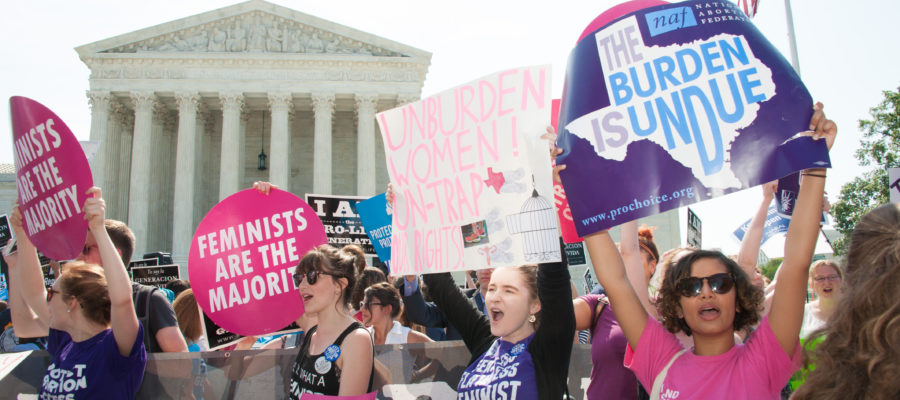Women’s March raises more questions than answers
January 17, 2017 | Published first in Crux
The Women’s March on Washington, set for the day after Inauguration Day, raises more questions than answers for me, and it’s not just because I’m an academic and this is a risk of the job.
It’s because what generally gets public credit for being the “women’s movement” – which represents a lot less than “all women” – has never answered them.
Yet these questions are genuinely important for achieving actual justice, freedom and sexual equality. Not to mention plain old happiness, and some measure of daily equanimity for women and for the small and large networks and institutions depending upon women.
Now is a good time to ask them. Because it’s a time when most of the press is going to pretend to pay attention to questions about what women “really want,” and then pretend to learn that the full set of answers is the following:
- Free contraception
- Unregulated abortion
- “Closing the pay gap”
- 50/50 childcare and housework deals
- More women in STEM studies and jobs
- Paid family leave
- An end to “gender stereotypes”
- No sex trafficking
In other words, the press will get some of them right – as a matter both of principle and of surveyed women’s opinion – but they will get more wrong or half-wrong, because they didn’t take the time to ask the right questions. Reporters are overburdened, yes. But at some point in the course of decades of covering women’s issues, there must be time, yes?
On the matters of ending sex trafficking and beginning paid family leave, I think the “usual answers” are right both on principle and as a matter of women’s actual opinion. Even if some economists’ qualms are right that the economy will have to adjust to the cost of paid family leave, and that it won’t always be pretty.
Children, however, must be a national priority. They are all of us. They are especially vulnerable at the beginning of their lives, according to every kind of scientific discipline you can name. Women need it, too, for their minds and bodies.
Regarding ending sex trafficking, I don’t think I need to utter another justificatory word.
But when it comes to the other issues? Questions, questions.
Yes, most women use contraception, but wasn’t it the Obama administration that got its hair on fire about making it free, and running the Little Sisters of the Poor up and down the courts to force religions to cooperate? Women didn’t start this.
In fact, a large cohort of women hate contraception for what it does to their minds, bodies, libidos, relationships and the sexual and marriage marketplaces in which they operate. Take a look at my Facebook page WomenSpeakforThemselves.com to grasp these women’s further thoughts on this subject.
So, no fair tagging “free contraception” as a straightforward “women’s issue.”
Abortion? A women’s issue? Have nearly 50 years of women-led pro-life activism, post-abortion ministry and crisis pregnancy centers taught us nothing? Some women support abortion, but it breaks the hearts and fires the intellectual opposition of many other women.
On the pay gap and the STEM gap, it depends. Americans, male and female alike, have come around to the sensible positions that women and men should be paid equally for the same work. But what if they choose different jobs? Or what if women really want to spend more time caring for family and choose part- or flex-time jobs that are lower paying?
What if women like other-than-STEM jobs more? Do they? Maybe, maybe not. We won’t know for sure until we have a further generation or two of women with equal opportunities to enter those fields.
And while we’re at it, why aren’t we paying teachers and nurses and other typically-female jobs more? This would help close the pay gap too, right? What if men are choosing to work more hours or take fewer family-related breaks in their careers? Should we account or discount for this in calculating any pay gap?
In short, the battle cry that women are making 77 cents on the man’s dollar, or that women are being actively prevented from STEM paths, is not what it appears. It’s not that black-and-white.
Finally, regarding gender stereotypes and domestic and childcare work, if you read the literature I read all day (in family law and sociology) you would see that, here too, there are more questions than answers.
Sure, women want to strike off the old ideas that women are stupid, irrational, and suited for domestic work only. But contra the current obsession with sexual fluidity, the vast majority of women like being women, and maintain an interest in the opposite-sex and children.
Do we really think it’s an accident that about 85 percent of all single parent households are headed by women? Or that women report being interested in marriage and children more often and at younger ages than men? Or that studies across the globe show that women dislike casual sex, and cohabit less when they are underrepresented in the local dating pool?
Or that role-switched marriages have more trouble? Or that marriages in which couples maintain an ethic of gift-giving and appreciation for the other do better than marriages pursuing that 50/50 thing?
Progress for women – and men, and kids – would be better achieved if we aired these questions more often, and then pursued true answers and fair policies.
I realize that no one wants to organize a march called “The March for Some Women’s Ideas, Some of Which are Good, Some Vague, and Some Truly Terrible.”
But that would be a more fair characterization of the 2017 Women’s March.
Helen Alvare is Professor of Law, Scalia Law School, George Mason University and founder of Women Speak for Themselves.



